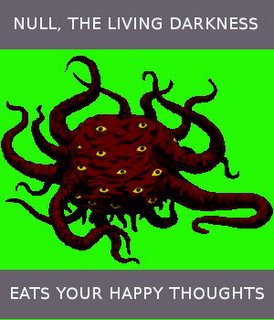So it took a scandal to bring the Heap out of its semi-retirement, but I felt like I had some thoughts to add. By now everyone knows about the
creator who was sexually assaulted by an industry peer, and several people have had some really great and insightful things to say about it. Too many to link, in fact, so please head over to
When Fangirls Attack and scroll down. I noticed that
Elayne Riggs mentioned how few of the men who blog about comics have weighed in on this thing, so I thought I would contribute some thoughts that I have about privilege, avoidance and distraction.
There has not been a single post made by a woman on this subject that did not have, somewhere in the comments, a variation on the theme of "most men in comics and fandom aren't like that." This is a statement of distraction and avoidance. For one thing, it goes without saying. People who are not the problem...are not the problem. By shifting the focus off of the offenders and onto all of the decent people, we allow the offenders to keep on keeping on, and that doesn't do anyone any good.If I get mugged, I don't want someone who is ostensibly a well-wisher to come up to me and say, "well, the majority of people don't go around mugging, so relax." It doesn't help. It distracts.
Focussing the attention on the good people of comics has a net effect of zero when it comes to making it a less hostile environment for women. It sends the message that you can't change the way it is, but at least you can ignore it. For men that's true. That's part of what it means to have privilege. For women, however, it's not true. They can focus on the good guys all they want, but the bad guys are still there, leering, grabbing, assaulting, making unwanted drunken advances, and when rebuffed, blaming the women for being uptight, not having a sense of humor, being dressed a certain way, or only liking jerks or something. Most men in the industry/fandom are decent? It doesn't matter. The environment is hostile to women either way. Why isn't it hostile to the gropers, instead? Why aren't they the ones who feel uncomfortable?
When you point out again and again that most of the men are decent, what you are in effect doing is waving your hands over your head saying, "Yoo hoo! Look at me, I'm one of the good ones, don't hate me!" You're making it about yourself. Don't. It's not.
Another fun avoidance/distraction technique is mentioning that things like sexual assault/harrassment happen outside of comics too, it's a larger problem, whaddyagonnado...etc. But you know, you can fight against it inside and outside of comics, if you want to. And if you just fight it in the world of comics, it's certainly not going to hurt. Hell, if everyone who was a geek for something fought against sexual harrassment in their own subculture, say Sci-Fi, auto racing, gaming, hunting, fishing, whatever, that might make a fairly good sized dent in the problem. If comics is what you know, it's as good a place as any to stand your ground.
And of course, the "what can I do if I don't know what to boycott" line is a good one too. Look, nobody has to boycott anything; it won't make a difference to anyone but your DM outlet proprietor (of course, if your LCS owner is one of the jerks...). As long as the movie gets made and the toys and video game tie-in merchandising happy meal stuff gets made, you cannot hit them where it hurts simply by changing your comic buying habits. What you can do is listen and think. When women speak about their experiences and their discomfort, don't try to make it about yourself. If you are not contributing to the behaviors that make them feel uncomfortable, then they aren't talking about you and there's no need to defend yourself. Listen. Find out what it is that bothers them. You may not think it sounds like a big deal, you may think they just need to lighten up, but when you think that way, you are approaching the problem from a position of privilege. Always remember that. Please don't try and pull their attention away from the things that bother them. If someone's giving them trouble and you say, "Oh, he's just like that, ignore him" or "What about all the good people," well, that's a little patronizing, isn't it? You might as well be saying "you're too pretty to be having such unpleasant thoughts." Which pulls you squarely out of the decent guys column and puts you in with the creeps. Even if you mean well.
The anger is legitimate. The harrassment is not. And while I and my sex can get past this and move on if we so choose, it is only because of our privilege. The women who love the medium as we do don't have that option. And I am not moving on until they can, too.
